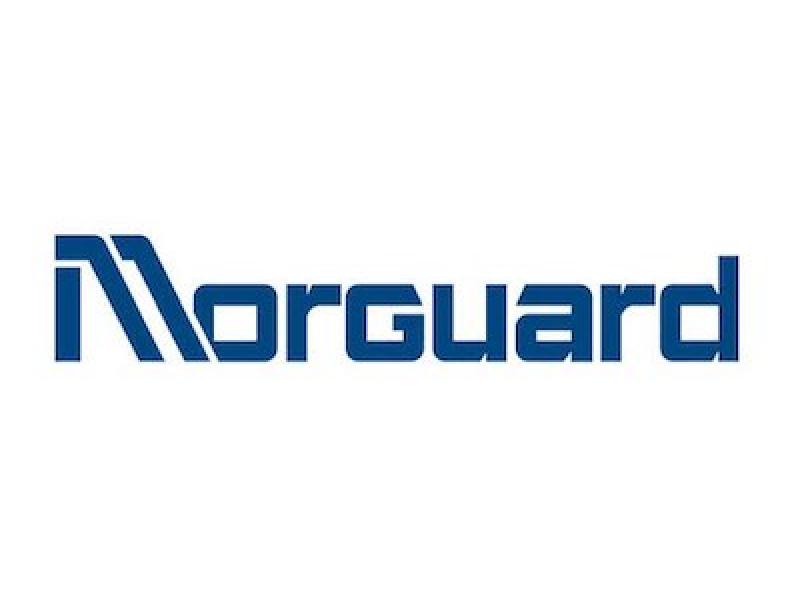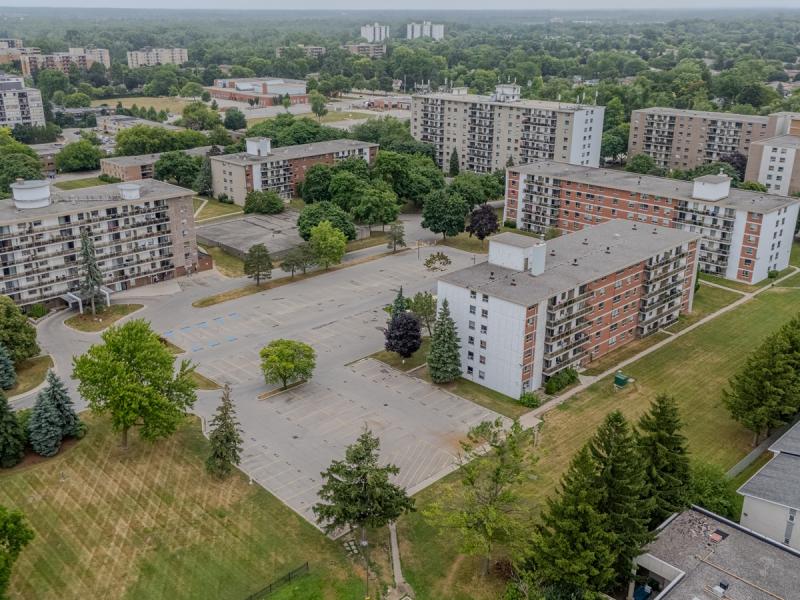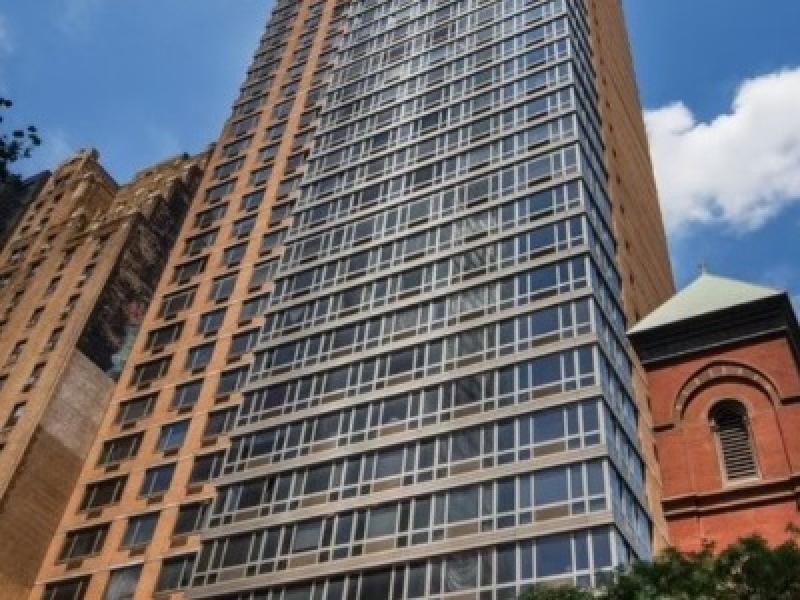
Jonathan Gitlin is president and COO of RioCan REIT. (Courtesy RioCan)
The grooming process is now complete. Jonathan Gitlin will succeed Ed Sonshine as CEO of RioCan REIT (REI-UN-T) at the end of March, the trust announced Wednesday morning.
Gitlin, who has spent the past 15 years moving up the ranks at RioCan, was named president and COO of RioCan in 2019, when Sonshine first announced his intention to retire.
The step up to CEO will take place on April 1, 2021. Gitlin will also take a seat on the RioCan board of trustees.
Sonshine will remain involved with RioCan, becoming the chairman of the board, succeeding Paul Godfrey, who will step down on that date and become lead trustee.
“I am pleased to have confirmed the arrangements for my succession in 2021, which we first announced last year and have now finalized,” Sonshine said in the announcement. “During my remaining time as chief executive officer, I will focus on overseeing continued execution of RioCan’s strategy and major initiatives as well as preparing for an orderly transition of my duties.
Gitlin and RioCan REIT
“I would like to congratulate Jonathan Gitlin for this well-deserved promotion to RioCan’s president and chief executive officer. Jonathan’s integrity, decisiveness, credibility and unwavering focus on sustainable growth make him the ideally suited to lead the trust.”
Gitlin joined RioCan in 2005. He was formerly a commercial real estate lawyer, but was looking for a career change and targeted Sonshine and RioCan as the place he wanted to work.
Gitlin relayed that tale during an interview with First National‘s Aaron Cameron and Adam Powadiuk during a Sept. 9 Real Estate Forums webinar.
Gitlin said he saw RioCan as a solid blue chip company doing interesting and innovative things, and he was attracted to the firm’s culture during semi-regular conversations with Sonshine.
He joined RioCan as investments director in 2005 and his climb up the ranks of the 630-employee trust began.
“I have great confidence in Jonathan and I look forward to working with him as non-executive chairman as we overcome the current industry challenges and capitalize on evolving opportunities to position RioCan for the next phase of its growth and success,” Sonshine said in the announcement.
Gitlin will take the helm of one of Canada’s largest REITs. RioCan owns 221 properties comprising approximately 38.6 million square feet (at RioCan’s interest), including retail, office, residential rental and 15 development properties.
Gitlin’s early days at RioCan
During his webinar interview, Gitlin discussed the REIT’s growth and his own progression.
Growth through the acquisition of retail power centres was RioCan’s objective when Gitlin came on board, he explained. They were less expensive to build and operate than enclosed malls and mitigated development risk because they could be constructed one building at a time.
RioCan was the first to amass a large number of power centres in Canada, which Gitlin called a bold and entrepreneurial move since they hadn’t yet been properly explored in the country to that point.
Major joint venture acquisitions with New York-based Kimco starting in 2000 helped establish RioCan as the biggest retail property owner/manager in Canada.
“Their recognition that RioCan was a great entity with a good growth profile really established us more than we’d ever been,” said Gitlin.
“That affiliation was critical to us, but it also provided us with that rocket fuel of capital to go out and acquire a significant portfolio of unenclosed assets, which we did very intelligently throughout Canada.”
It’s not as easy now to launch buying sprees, but RioCan’s existing well-located land holdings have become a major strength. The REIT looks at each one to see what its highest and best use is and how value can be added to it.
Some retail centres are left as is. Some have their look tweaked, or tenant mix or use changed. Others are completely redeveloped.
Acceleration of RioCan’s major market focus
RioCan had been disposing of secondary and tertiary market properties for a decade, but threw that process into overdrive in 2017.
“There was a disproportionate amount of time being spent by our team on keeping those centres full. So we just thought if we could allocate our capital and our human resources to growth areas and major market assets that have more promise, that was the wise thing to do.
“Plus we’d have the added benefit of taking the proceeds from the disposition process and utilizing it to pay off debt . . . and ultimately fund some development.”
RioCan sold its American portfolio to Blackstone and publicly announced its objective to sell a significant number of other assets that “flooded the market.”
The company disposed of around 100 properties worth approximately $2 billion. RioCan’s portfolio is now about 90 per cent based in major markets, more than half of it in the Greater Toronto Area.
While not as active as it was, Gitlin said RioCan is in talks with a few parties about selling assets in both secondary and major markets.
“I think there’s still capital out there that’s chasing these types of assets. In many cases they’re assets that have good fundamentals to them. They’re grocery-anchored and have some good secondary tenants, they just happen to be in markets that aren’t as sexy as Toronto.”
The main issue now for anyone looking to buy retail properties is financing. Due to COVID-19 and slumping retail and retail real estate markets, Gitlin said lenders are being more stringent with their underwriting principles.
Changing state of Canadian retail
The pandemic and increased e-commerce activity has accelerated the demise of some retailers that were already struggling, while others are being forced to use the Companies’ Creditors Arrangement Act (CCAA) to restructure their business and financial affairs.
Gitlin is optimistic some will come out of the CCAA process in better shape.
He’s also hopeful that hybrid click-and-collect retail, which combines online with bricks-and-mortar commerce, will become more prominent. He said it’s great for retailers because it saves them money, and great for landlords because retailers still need space to facilitate these operations.
“There’s no way that these retailers are going to be giving up their footprints, particularly when they’re well-located and penetrating urban markets or even suburban markets when, quite frankly, their occupancy costs are quite low even relative to industrial fulfillment centres that they have on the outskirts of these large cities.”
Gitlin doesn’t believe COVID-19 is a “terminal condition” and said people will eagerly return to stores, restaurants and gyms after the crisis passes.
Accommodating retail tenants
RioCan has participated in rent deferrals and abatements, as well as in the federal government’s Canada Emergency Commercial Rent Assistance program — where the government pays 50 per cent of gross rent and the landlord and tenant split the other 50 per cent — to help its struggling retail tenants.
Each tenant has been dealt with on an individual basis and strategies have varied.
In exchange for rent abatements, Gitlin said RioCan asks for something in return, such as a renewal, a waiver of certain provisions or termination rights allowing RioCan to unearth development rights.
While Gitlin expects some tenants to remain vulnerable over the next six months to a year, he said RioCan has a diverse tenant base with a lot of functions and significant credit.
While the REIT may face a higher vacancy rate in the near term, he’s confident it will eventually return to normal levels.
Softening apartment market
While apartment vacancy rates are increasing, Gitlin believes there’s still a longer-term housing shortage in Canada, and immigration and population growth will fuel the appetite for more residences.
RioCan won’t let current COVID-19 conditions affect its long-term decisions and strategies.
“If we can build great mixed-use properties on our existing footprints, we are going to do that — particularly when they’re transit-oriented and urban in nature,” said Gitlin. “Thankfully, most of our properties are exactly that. We are going to continue down that route.”
RioCan’s goal is to be the long-term owner of every component of its mixed-use developments since a residential building on its own isn’t as valuable as one married to a good retail site, which is a great amenity. Retail tenants also benefit from having hundreds of residents above or around them.
Gitlin noted RioCan has entitlements to build more than 14 million square feet of mixed-use density and another 40 million square feet in identified density in its pipeline. Office space will be included in some of those developments.
RioCan’s stock price has remained down by about 40 per cent to the $14.50 to $15 range since early March when COVID-19 started to make a major impact in Canada.
“I think there’s a disconnect between the private and public markets right now,” said Gitlin. “The sum of all of our parts, including the development lands that we have, will be recognized.
“We don’t really show it on our balance sheet now, but our density has huge underlying value.”










